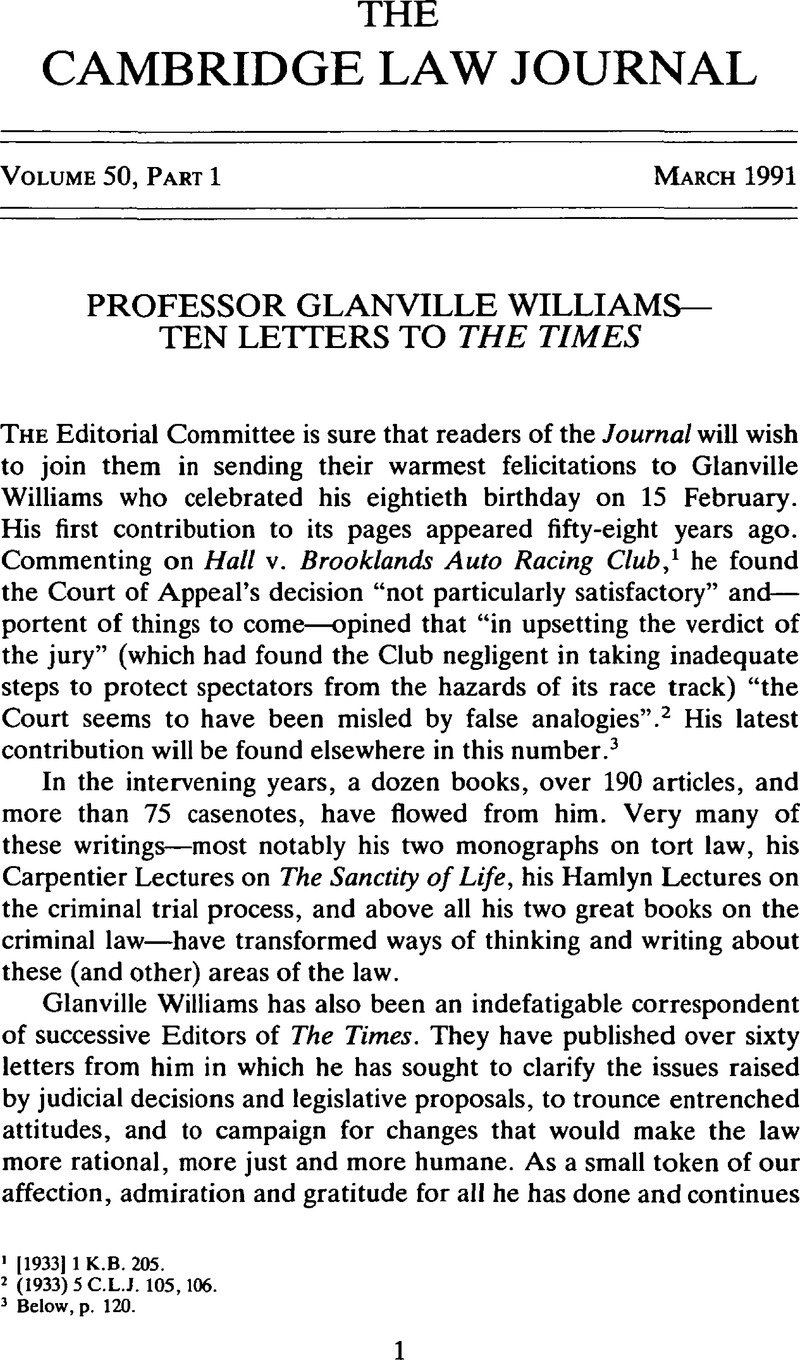No CrossRef data available.
Article contents
Professor Glanville Williams—Ten Letters to The Times
Published online by Cambridge University Press: 16 January 2009
Abstract

- Type
- Other
- Information
- Copyright
- Copyright © Cambridge Law Journal and Contributors 1991
References
1 [1933] 1 K.B. 205.
2 (1933) 5 C.L.J. 105,106.
3 Below, p. 120.
4 The Home Secretary (Mr. R.A. Butler) established the Criminal Law Revision Committee nearly seven years later, on 2 February 1959.
5 Local powers of arrest were outlawed thirty years later by the Police and Criminal EvidenceAct 1984, s.26.
6 The crime of attempted suicide was abolished by the Suicide Act 1961; the rule governing lifeinsurance policies (about which Glanville Williams wrote further letters published on 26 February 1958 and 14 March 1961) was not changed by the Act, but the courts may no longer consider that public policy requires them to apply it.
7 The Court of Appeal (Criminal Division) was eventually given power to order a new trial bythe Criminal Justice Act 1988, s.43.
8 The Abortion Act 1967 was passed in the following parliamentary session. This letter was the first of 19 letters from Glanville Williams on the law of abortion and the various proposals toenlarge or restrict it.
9 11th Report, Cmnd. 4991.
10 Provision for the taping of police interrogations was made by the Police and Criminal Evidence Act 1984, s.60.
11 It read: “Am I alone in thinking that forced feeding should be no part of a prison sentence? In Stoic philosophy, part of human freedom is that we continue in this world of our own volition. Thirteen years ago Parliament enacted that suicide should no longer be a crime; and although the main reason for that was a belated recognition of the futility and cruelty of punishing attempted suicide, 1 like to think that in some measure Parliament also acknowledged the Stoic principle. A prisoner who starves himself to death as a protest may be an embarrassment to the authorities, but I would rather have them accept this embarrassment than keep prisoners aliveby force.”
12 On 17 July 1974 the Home Secretary (Mr. Roy Jenkins) announced that the practice of force-feeding prisoners on hunger strike (and not thought to be mentally disordered) would cease.
13 [1975] Q.B. 637.
14 Unhappily, the Law Commission' recent draft Criminal Code does not provide such a defence;see, further, Williams, Glanville in (1989) 9 L.S. 177–188.Google Scholar
15 [1979] A.C. 264.


